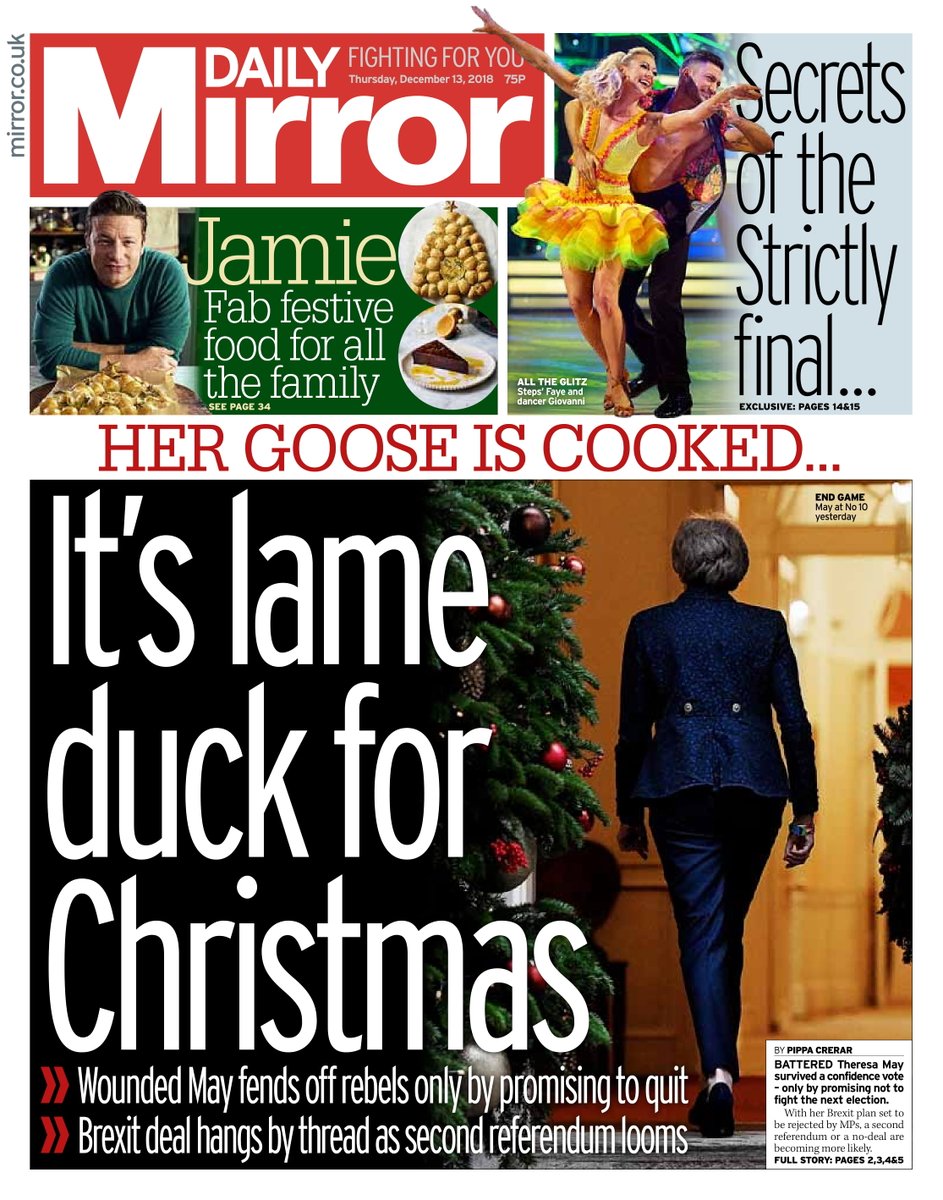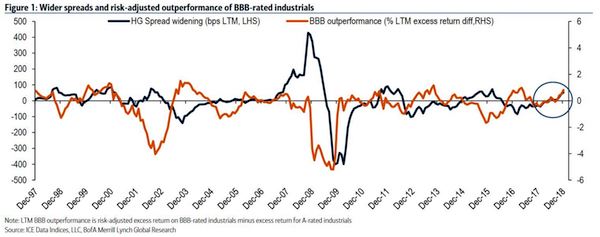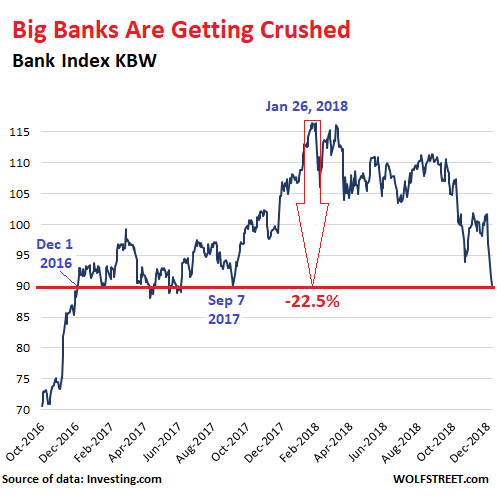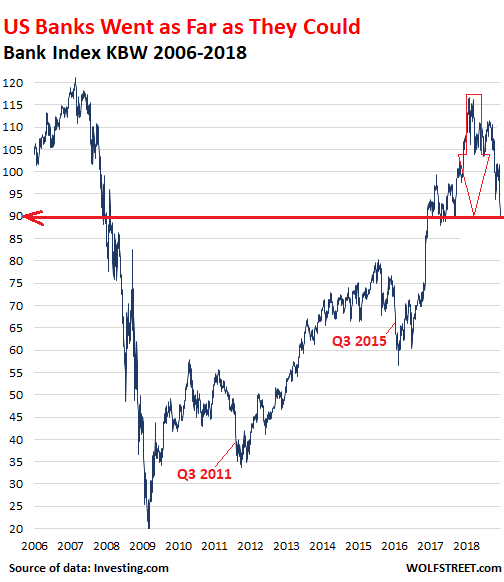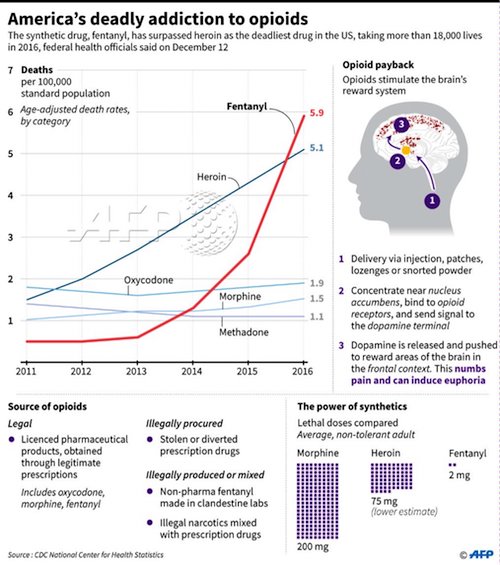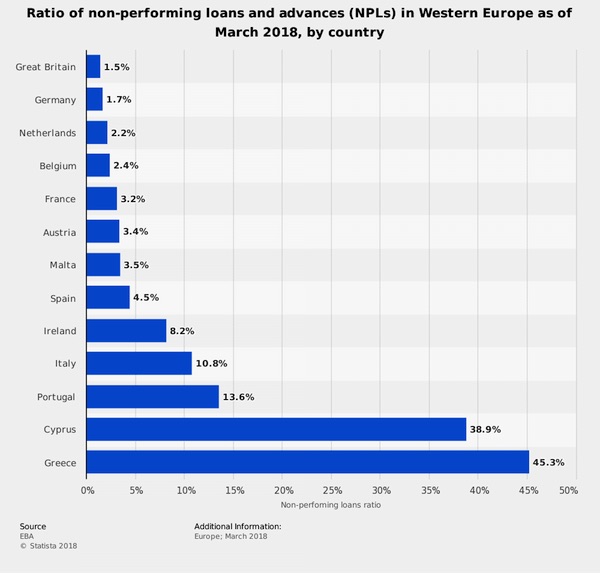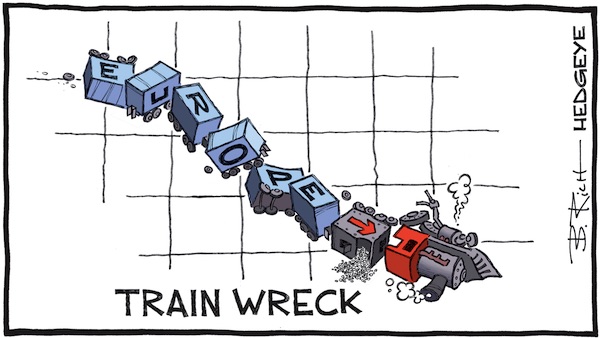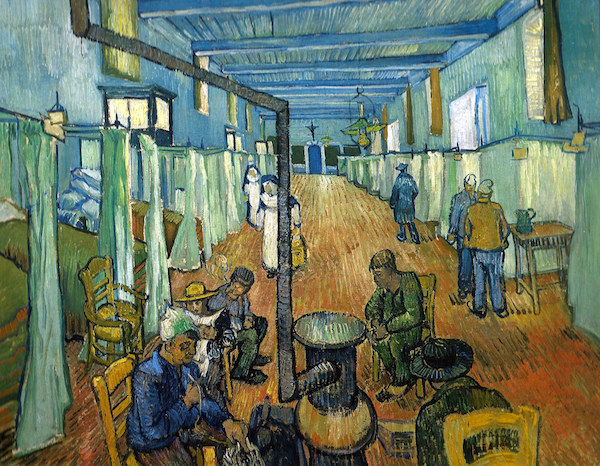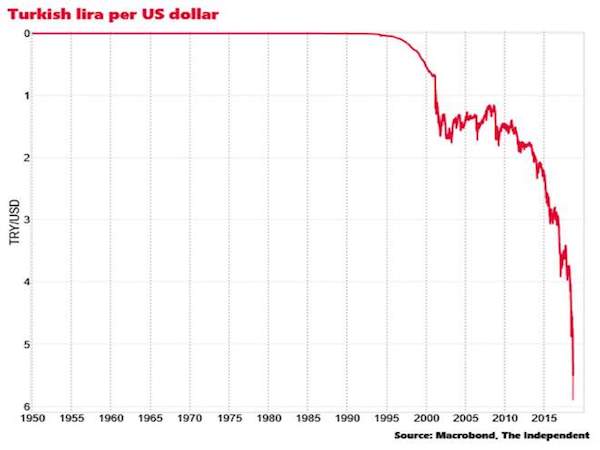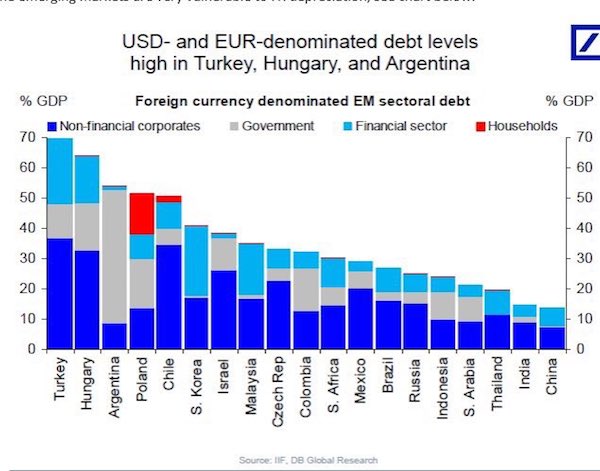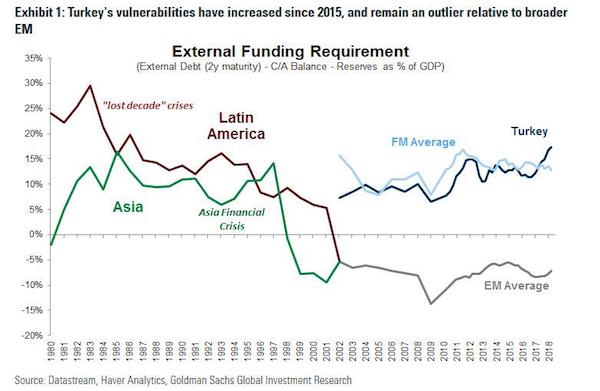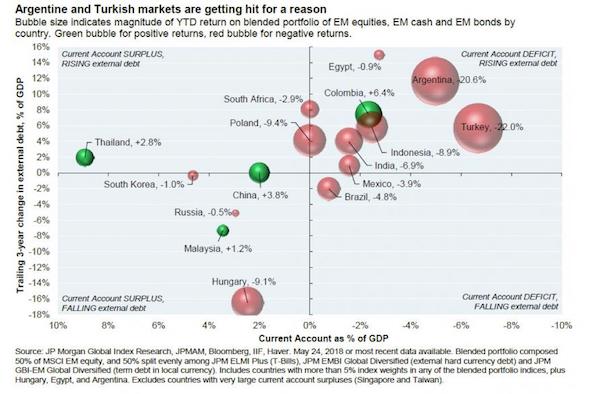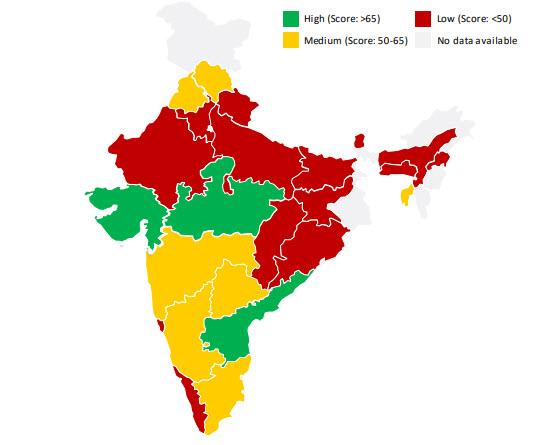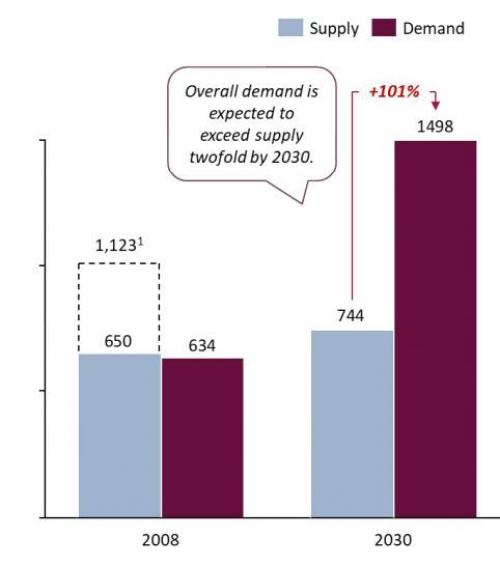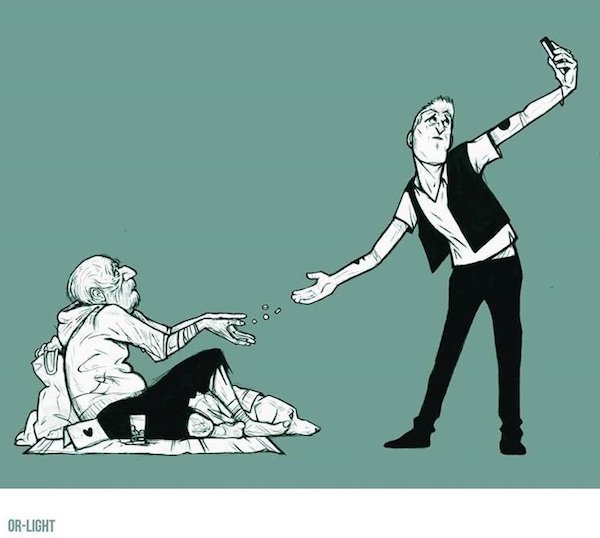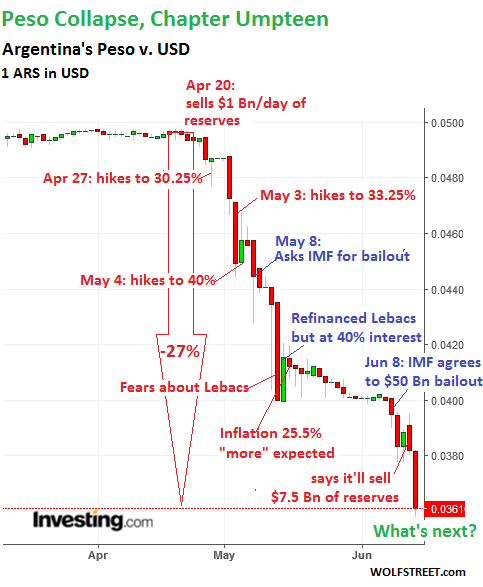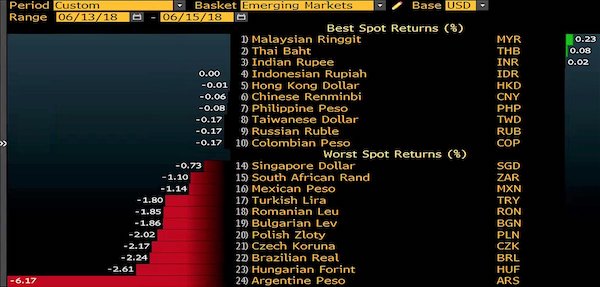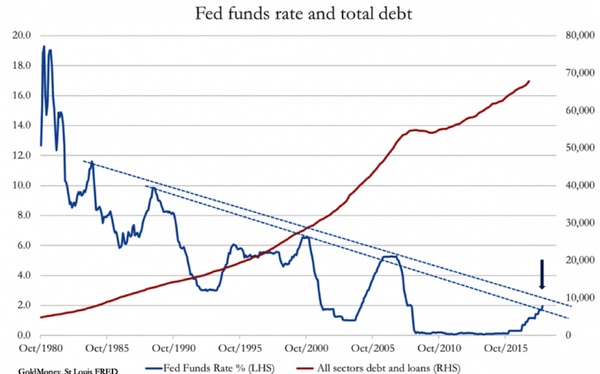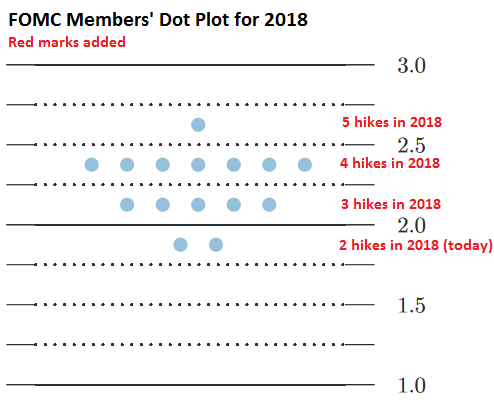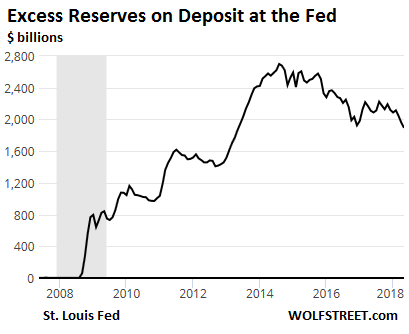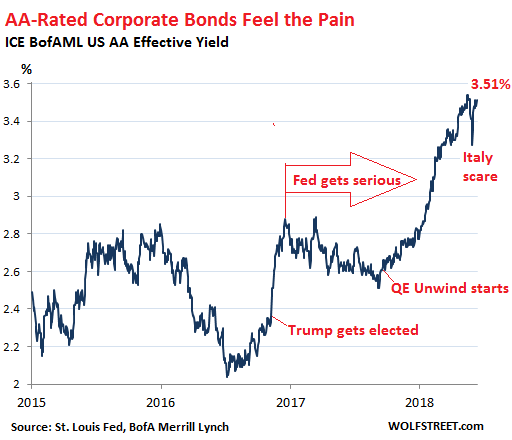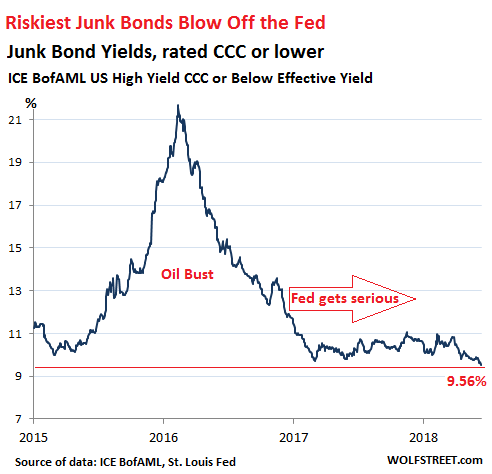
Paul Signac Boulevard de Clichy under snow 1886

No. 1 victim will be Italy. ECB was the only buyer of their bonds. And bit by bit Europe will realize Draghi has been spending them into a blind alley. 2019 promises to be a crazy year in Europe.
• ECB To Halt €2.6 Trillion Stimulus Despite Eurozone Slowdown Concerns (G.)
The European Central Bank will halt its €2.6tn stimulus programme in January despite concerns that the eurozone is poised to slow down over the next couple of years. Mario Draghi, the ECB boss, warned that rising uncertainty had forced the bank to downgrade its outlook for the currency bloc next year and the effects would continue to be felt in 2020. Draghi, without mentioning the US-China trade war, Brexit or the Italian government’s dispute with Brussels, said: “The balance of risk is moving to the downside.” He said growth would be limited to 1.7% in 2019, “owing to the persistence of uncertainties related to geopolitical factors, the threat of protectionism, vulnerabilities in emerging markets and financial market volatility”.
The worse-than-expected outlook sent the euro tumbling on international exchanges as investors cut back their expectations for growth across the continent. Figures showing that the German economy contracted in the last quarter were a clear signal that the eurozone had come under pressure from weakening global trade, while the slowing of the bloc’s other two major economies – France and Italy – only added to the worsening outlook. However, the ECB said the recovery was strong enough that it could stop expanding its QE programme that has seen it pump €2.6tn into the eurozone economy to stoke growth and inflation from January.

Fear of tariffs and trade wars cause US importers to front-load their orders, causing shipping to get much busier. The US imported much more, not less after Trump’s tariffs rhetoric.
• Shipping Costs From China To The US More Than Doubled In 2018 (CNBC)
The price of shipping a container from China to the United States has risen dramatically in the last year due to uncertainty surrounding trade tensions between Washington and Beijing. That’s because Chinese exporters have been rushing to get goods to U.S. ports before new tariffs kick in, but data are suggesting that trend may soon run out of steam. China and the U.S., the world’s two largest economies, have been locked in a tit-for-tat tariff fight over the last year, levying duties on each other’s imports worth hundreds of billions of dollars in the last few months. Increasingly strong fears of an all-out trade war have inspired exporters to push forward shipment dates — a phenomenon called front-loading.
In fact, freight prices for containers going from China to the U.S. have surged more than 100 percent from a year ago as of the beginning of December, according to data from Freightos, an online freight marketplace, “Transpacific ocean freight peak season has been a bonanza, with prices still more than double last year,” said a report on the most recent Freightos data published on the Baltic Exchange’s news website. That was as freight rates for China to the U.S. West Coast jumped 128 percent while those from China to the U.S. East Coast surged 123 percent compared to the same period a year ago. In contrast, China to North Europe freight rates were up just 11 percent in the same period due to pre-Christmas cargoes.

And that is after exports to the US were frontloaded because of tariffs. What’s going to happen after January 1?
• China Reports ‘Ugly’ Industrial Output And Retail Sales Growth (CNBC)
China on Friday reported industrial output and retail sales growth for the month of November that missed expectations, according to data from the National Bureau of Statistics, as the world’s second-largest economy started to show signs of slowing amid a bitter trade dispute with the U.S. Industrial output in November grew 5.4 percent from a year ago — the slowest pace in almost three years as it matched the rate of growth seen in January to February 2016, according to Reuters records. The growth in industrial production was lower than the 5.9 percent analysts in a Reuters poll had predicted.
Retail sales rose 8.1 percent in November — the weakest pace since 2003, according to Reuters’ records — lower than the 8.8 percent the analysts expected. November retail sales growth was down from 8.6 percent in October. Fixed asset investment rose 5.9 percent from January to November, marginally higher than the 5.8 percent the economists had forecast. FAI rose 5.7 percent from January to October. [..] The weaker Chinese data in November shows that the positive impact of front-loading had begun to taper off and that downward pressure on the Chinese economy was increasing, wrote Sue Trinh, head of Asia foreign exchange strategy at RBC Capital Markets in Hong Kong. The industrial output and retail sales data released on Friday were “ugly,” she added in a Friday note.

Why Brexit, you asked?
• Average UK Worker Earns A Third Less Than In 2008 (PA)
Wages are still worth a third less in some parts of the country than a decade ago, according to a report. Research by the Trades Union Congress (TUC) found that the average worker has lost £11,800 in real earnings since 2008. The UK has suffered the worst real wage slump among leading economies, said the union organisation. The biggest losses have been in areas including the London borough of Redbridge, Epsom and Waverley in Surrey, Selby in North Yorkshire and Anglesey in north Wales, the studyfound.
Workers have suffered real wage losses ranging from just under £5,000 in the north-east to more than £20,000 in London, said the report. The TUC general secretary, Frances O’Grady, said: “The government has failed to tackle Britain’s cost-of-living crisis. As a result, millions of families will be worse off this Christmas than a decade ago. “While pay packets have recovered in most leading economies, wage growth in the UK is stuck in the slow lane. “Ministers need to wake up and get wages rising faster. This means cranking up the pressure on businesses to pay staff more, especially at a time when many companies are sitting on large profits.”

“..European leaders were left amazed when she turned up without any developed requests or ideas…”
• EU Leaders Scrap Plans To Help Theresa May Pass Brexit Deal (Ind.)
Theresa May‘s Brexit plan was dealt another major blow at a meeting with EU leaders on Thursday night in a disastrous turn of events that resulted in them scrapping written commitments to help her pass her deal through parliament. After arriving in Brussels with promises to help the prime minister, European leaders were left amazed when she turned up without any developed requests or ideas. The 27 heads of state and government subsequently decided to delete lines from their council conclusions saying the EU “stands ready to examine whether any further assurance can be provided” and that “the backstop does not represent a desirable outcome for the union”.
The key paragraphs appeared in leaked earlier drafts on the conclusions and their absence leaves a barebones statement that does the bare minimum to help the prime minister. The limited assurances provided in the statement are extremely unlikely to placate Ms May’s MPs, who have said they want major changes to the agreement. Accounts of the meeting suggest the prime minister’s speech, in which she called for help to get the agreement “over the line”, was repeatedly interrupted by Angela Merkel asking her what she actually wanted from them. Senior UK government officials admitted that the prime minister did not bring any documented proposals with her to the meeting. The approach puzzled EU diplomats, who for days before the conference had said they needed to see what proposals Ms May had come up with before they could respond to her request for aid.

Labour lacks all strength. What have they been doing in the past 2 years?
• Labour Plans To ‘Throw Kitchen Sink’ To Force May’s Hand On Brexit (G.)
Jeremy Corbyn will seek to increase pressure on Theresa May in parliament next week in a bid to prevent the Tories running down the clock on Brexit. As the prime minister urged EU leaders to offer fresh concessions in Brussels on Thursday, senior Labour sources stressed the party was determined to “turn up the heat” at home. May’s spokeswoman confirmed on Thursday that “there will be no meaningful vote before Christmas”, while the prime minister negotiates with her EU counterparts. But Labour fears May will only be able to win cosmetic changes to the backstop – and that she will use the ongoing talks as an excuse to avoid testing the will of parliament.
“There must be no more dither and delay, or attempts to run down the clock in an attempt to deny parliament alternative options,” Corbyn said on Thursday. “People and businesses need certainty. The prime minister should put her deal before parliament next week in our country’s interest,” he said, adding that there was “no time to waste”. The Labour leader has held meetings with the shadow Brexit secretary, Sir Keir Starmer, who has been pressing for the party to table a motion of no confidence in the government before parliament rises for a Christmas break next Thursday. That option has not been ruled out – depending on the reaction of Conservative backbenchers and the DUP when May reports back to MPs from the European council meeting on Monday.
But the party is also studying alternative, less drastic options, including tabling an urgent question on the government’s no-deal preparations; and demanding a three-hour emergency debate to allow parliament to set out its expectations for the latest negotiations over the backstop. It could also demand a full parliamentary debate of regulations readying the financial services sector for a no-deal Brexit, which are currently due to be considered in a committee. “Essentially we can throw the parliamentary kitchen sink at them,” said another senior Labour source, “with all the trimmings”. Some shadow ministers are more sceptical about calling a no-confidence vote early, fearing it would only unite the Conservatives behind May. One told the Guardian: “We’ve got to wait until January now.”

Germans that don’t want a way back for Britain. But that’s not their decision.
• There Should Be No Exit from Brexit (Spiegel)
For two years, the British government has been negotiating the terms of its withdrawal with the European Commission, and now Prime Minister Theresa May is unable to secure a majority for that deal in parliament. The more chaotic things get in London, the more tempting it will become for the country to exit from Brexit through the emergency door the European Court of Justice unlocked on Monday when it declared that the British government could unilaterally move to revoke Article 50. A second referendum that would provide democratic legitimacy to that step seems increasingly likely. But such a move could potentially have graver consequences than an orderly Brexit — both for Britain and the EU.
There’s a good and perhaps even compelling argument for a second referendum: Now that a deal with the EU is on the table, voters would at least finally know what it is they were voting on. In the first referendum in June 2016, that wasn’t even remotely the case. But the campaign ahead of a second referendum would in all likelihood be even more xenophobic and hate-filled than the first. That could in turn produce a British society that is even more divided than it already is today, particularly given that recent polls show the pro-EU camp winning a second referendum by a narrow margin. This time, however, it is likely that the losers would be even angrier and more disappointed than the losers of the first vote.
Many would feel that their long-desired Brexit had been stolen from them and would turn away from democracy in frustration. It would provide a significant boost to anti-European right-wing populists. And this would lead to problem No. 2: Such an outcome would also be uncomfortable for the rest of the EU. The European bloc is currently desperately seeking to find common ground on important policy areas including economic and monetary union, defense and immigration. A Britain that is hopelessly divided on domestic policy could cause significant damage were it still an EU member state.

I’m wondering how much of any Green New Deal -there are quite a few- depends on investing billions in allowing energy consumption to stay at equal levels, just with a shift from fossil to something else. How many people propose a 10-20-50% cut in overall energy consumption?
• My Plan To Revive Europe Can Succeed Where Macron, Piketty Failed (Varoufakis)
[..] the latest Piketty manifesto retains a hybrid parliamentary chamber, but forfeits any Europeanist ambition – all proposals for debt pooling, risk sharing and fiscal transfers have been dropped. Instead, it suggests that national governments agree to raise €800bn (or 4% of eurozone GDP) through a harmonised corporate tax rate of 37%, an increased income tax rate for the top 1%, a new wealth tax for those with more than €1m in assets, and a C02 emissions tax of €30 per tonne. This money would then be spent within each nation-state that collected it – with next to no transfers across countries. But, if national money is to be raised and spent domestically, what is the point of another supranational parliamentary chamber?
Europe is weighed down by overgrown, quasi-insolvent banks, fiscally stressed states, irate German savers crushed by negative interest rates, and whole populations immersed in permanent depression: these are all symptoms of a decade-long financial crisis that has produced a mountain of savings sitting alongside a mountain of debts. The intention of taxing the rich and the polluters to fund innovation, migrants and the green transition is admirable. But it is insufficient to tackle Europe’s particular crisis. What Europe needs is a Green New Deal – this is what Democracy in Europe Movement 2025 – which I co-founded – and our European Spring alliance will be taking to voters in the European parliament elections next summer.
The great advantage of our Green New Deal is that we are taking a leaf out of US President Franklin Roosevelt’s original New Deal in the 1930s: our idea is to create €500bn every year in the green transition across Europe, without a euro in new taxes. Here’s how it would work: the European Investment Bank (EIB) issues bonds of that value with the ECB standing by, ready to purchase as many of them as necessary in the secondary markets. The EIB bonds will undoubtedly sell like hot cakes in a market desperate for a safe asset. Thus, the excess liquidity that keeps interest rates negative, crushing German pension funds, is soaked up and the Green New Deal is fully funded. Once hope in a Europe of shared, green prosperity is restored, it will be possible to have the necessary debate on new pan-European taxes on C02, the rich, big tech and so on – as well as settling the democratic constitution Europe deserves.

From 2009 to 2017, the number of billionaires that own as much as the poorest 50% of world population went from 380 to 8. At that rate, pretty soon the world’s richest individual will own that much.
• A World That Is the Property of the 1% (Nomi Prins)
Thanks to the massive accumulation of wealth by a 1% skilled at gaming the system, the roots of a crisis that didn’t end with the end of the Great Recession have spread across the planet, while the dividing line between the “have-nots” and the “have-a-lots” only sharpened and widened. Though the media hasn’t been paying much attention to the resulting inequality, the statistics (when you see them) on that ever-widening wealth gap are mind-boggling. According to Inequality.org, for instance, those with at least $30 million in wealth globally had the fastest growth rate of any group between 2016 and 2017. The size of that club rose by 25.5% during those years, to 174,800 members.
Or if you really want to grasp what’s been happening, consider that, between 2009 and 2017, the number of billionaires whose combined wealth was greater than that of the world’s poorest 50% fell from 380 to just eight. And by the way, despite claims by the president that every other country is screwing America, the U.S. leads the pack when it comes to the growth of inequality. As Inequality.org notes, it has “much greater shares of national wealth and income going to the richest 1% than any other country.” That, in part, is due to an institution many in the U.S. normally pay little attention to: the U.S. central bank, the Federal Reserve. It helped spark that increase in wealth disparity domestically and globally by adopting a post-crisis monetary policy in which electronically fabricated money (via a program called quantitative easing, or QE) was offered to banks and corporations at significantly cheaper rates than to ordinary Americans.
[..] In our post-2008 era, people have witnessed trillions of dollars flowing into bank bailouts and other financial subsidies, not just from governments but from the world’s major central banks. Theoretically, private banks, as a result, would have more money and pay less interest to get it. They would then lend that money to Main Street. Businesses, big and small, would tap into those funds and, in turn, produce real economic growth through expansion, hiring sprees, and wage increases. People would then have more dollars in their pockets and, feeling more financially secure, would spend that money driving the economy to new heights — and all, of course, would then be well.

It should not be possible to have this kind of investigation into one side and not the other, simultaneously.
• Trump Inauguration Spending Under Criminal Investigation (CNBC)
Manhattan-based federal prosecutors are investigating whether some of the $107 million in donations to then President-elect Donald Trump’s inaugural committee were misspent, The Wall Street Journal reported Thursday. The Journal, citing people familiar with the matter, said the investigation arose in part from the slew of materials seized in April raids on Trump’s former personal lawyer, Michael Cohen, by federal prosecutors. Cohen on Wednesday was sentenced to three years in prison on charges that came in part from those April raids on his office and residence. The criminal probe is also looking into whether some of the committee’s top spenders traded money for access to the incoming Trump administration, as well as “policy concessions or to influence official administration positions,” sources told the Journal.
“Giving money in exchange for political favors could run afoul of federal corruption laws,” the newspaper explained. “Diverting funds from the organization, which was registered as a nonprofit, could also violate federal law.” Federal prosecutors have reportedly also questioned Richard Gates — the ex-partner of onetime Trump campaign chairman Paul Manafort — who pleaded guilty in February to conspiracy and lying charges lodged by special counsel Robert Mueller. Gates, who has cooperated with investigators in Mueller’s probe of Russian interference during the 2016 U.S. election, served as deputy chairman of Trump’s inaugural committee.

Exactly what I said about the case a few days ago. It’s become accepted in the US to coerce guilty pleas with vile threats and ugly treatment.
• US ‘Miscarriage Of Justice’ In Butina Case Denounced (RT)
Maria Butina’s only crime is that she is Russian, legal analysts told RT, attacking the US justice system for keeping her in solitary confinement until she admitted guilt to at least one of the many charges brought against her. “This is an utter and total miscarriage of justice,” retired CIA agent and whistleblower John Kiriakou told RT after Butina pleaded guilty to the charge of failing to register with the Justice Department as an agent of the Russian government. “You can see clearly, this is not about justice, this is not about criminal activity. This is about making a political point. This is about identifying Russia and Russians as the enemy of the United States, and punishing them.”
“We arrested this young woman because we need dirt on Trump and Russia. And she is Russian, political and pro-Trump,” US legal analyst Jennifer Breedon explained. “We are seeing [the Foreign Agents Registration Act – FARA] being used specifically as it relates to undermining the Donald Trump administration or conservatives really with anybody involved in Russia, friends with Russia or contacts.” The Russian gun activist was subjected to “unbearable pressure” from US authorities, by being kept in solitary confinement in the Alexandria detention center outside Washington, and only allowed to take an hour-long break from her “cage” per day. John Kiriakou believes this borderline “torture” could have forced her to admit to a crime she might never even have committed.
“This woman is not an enemy combatant. So, unless news surfaces that there was some kind of skirmish or issue within the jail… it seems to go against US policy and laws as to who is forced into solitary confinement, just based solely on the charges that were lodged against her,” Breedon said. “You are kept in a steel cage 23 hours a day. And for what? Because she failed to fill out a form to send to the Justice Department?” Kiriakou pondered. “It is no wonder people in solitary confinement in the United States commit suicide every day.”

Nothing to do with defying Trump, he wants this. Imagine he would say this, and then be held responsible for $400 oil. It’s much easier to speak as senator than as president. And many of these senators have politically supported Saudi for decades. They’re merely cleaning up their own mess.
• US Senate Passes Resolution Saying MbS Responsible For Khashoggi Murder (Ind.)
The Senate has passed a resolution saying Saudi Arabian Crown Prince Mohammed bin Salman is responsible for the murder of journalist Jamal Khashoggi. Defying Donald Trump’s desire to maintain close relations with Saudi Arabia including lucrative weapons deals, Senate Foreign Relations Committee chairman Bob Corker proposed the legislation, which has been backed by at least 10 of his fellow Republicans. The CIA is reported to have assessed with “high confidence” that Crown Prince Mohammed was involved in the order to kill Mr Khashoggi, partly based on the judgement that as the country’s de facto ruler he would have had to have known. Saudi authorities have blamed a “rogue” team of operatives for the killing and have repeatedly denied any involvement by the crown prince.
Mr Trump and a number of administration officials have sought to play down the CIA assessment, with Secretary of State Mike Pompeo saying this week that it has been reported “inaccurately”. The joint resolution calls for the Saudi government to ensure “appropriate accountability” for all those responsible for Mr Khashoggi’s death, calls on Riyadh to release Saudi women’s rights activists and encourages the kingdom to increase efforts to enact economic and social reforms. However, it is unclear if the House of Representatives will consider voting on the measure.





